#garlic mustard plant
Explore tagged Tumblr posts
Text
The Small Things Spreading Joy: May 2024

View On WordPress
#bugle flowers#cardinal beetle#Chinese dogwood flowers#cowslips#ducklings#ducklings swimming#garlic mustard plant#great tit#hedge garlic#laburnum flowers#lilacs#may blossom#merganser ducks#moorhen chicks#moorhen chicks swimming#my photographs#rabbit kits#raven calls#ravens#red catchfly#rhododendrons#roses#spreading joy#The Small Things#tulips#water forget-me-not#Wear the Lilac#welsh poppies#white beam blossom#willow catkins
1 note
·
View note
Text
As garlic mustard is starting to show up, please remember that it's invasive in North America BUT native to Europe and Asia. So taking the whole plant is fine in America but not in Europe. I'm making this post in reference to last year's posts about war on garlic mustard. I've seen a post of someone who took the whole plants and they were European and learned that it's not invasive there. So do your research and forage safely and ethically.
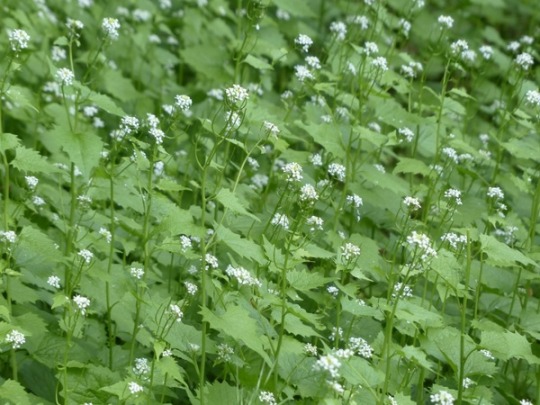
#garlic mustard#foraging#solarpunk#plants#invasive plants#native plants#safe foraging#ecology#garlic mustard war#garlic mustard war 2023
2K notes
·
View notes
Text
listen i love and grow and appreciate native plants as much as any plant ecology nerd but good god the energy of a lot of native plant discussion on social media continues to be so............ much
#like got a comment a few weeks ago on work facebook on baptisia saying 'and it's native to this country!!'#which is so... idk the energy of that is off#people comparing the nectar of non-native flowers to candy with no nutrition#people bashing no mow may because it's not doing enough and lawns are invasive#assigning moral worth to plants#etc etc#that garlic mustard's not evil karen it's a plant
1K notes
·
View notes
Text



garlic mustard (alliaria petiolata) is the most invasive little bitch around. not only do the roots exude a chemical that inhibits the growth of other plants, it produces seeds like a MONSTER
i may not be able to win any real battle against this assclown, but i like to do my small part by eating a lot of it. in the spring the young greens are yummy, and the roots have a horseradish taste that’s pretty good. and speaking of seeds…
garlic mustard seeds are a more mild version of yellow or brown mustard seeds, and can be used as a substitute for both. i use it in my pickling spice mix and let me tell you, it is FIRE 🔥
57 notes
·
View notes
Text

Vegan Irish "Egg" Rolls
inspired by a dish at the now defunct Clarke’s Irish Pub in Miami Beach, these egg rolls are stuffed with a traditional Irish meal, veganized!
#vegan#lunch#st. patrick's day#veganized#egg rolls#potato#cabbage#seitan#paprika#mustard powder#vegan worcestershire sauce#garlic powder#soy sauce#plant milk#vegan butter#coriander#vegan egg#mustard#black pepper#sea salt#egg roll wrappers
124 notes
·
View notes
Text
Garlic mustard haul :)

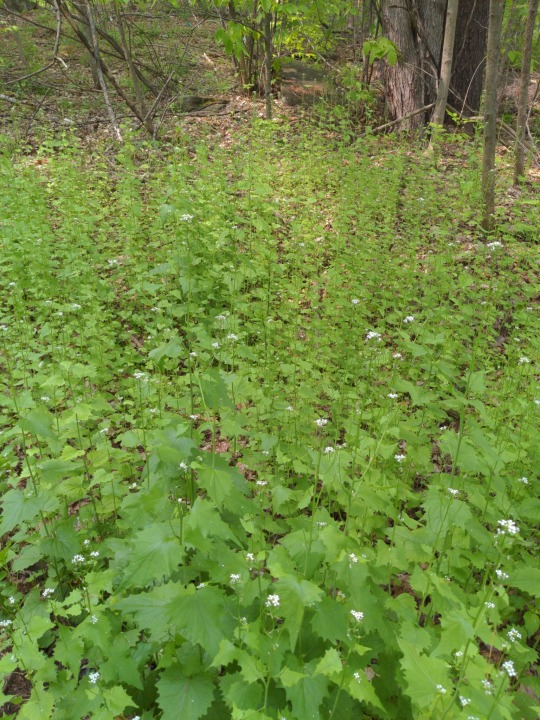
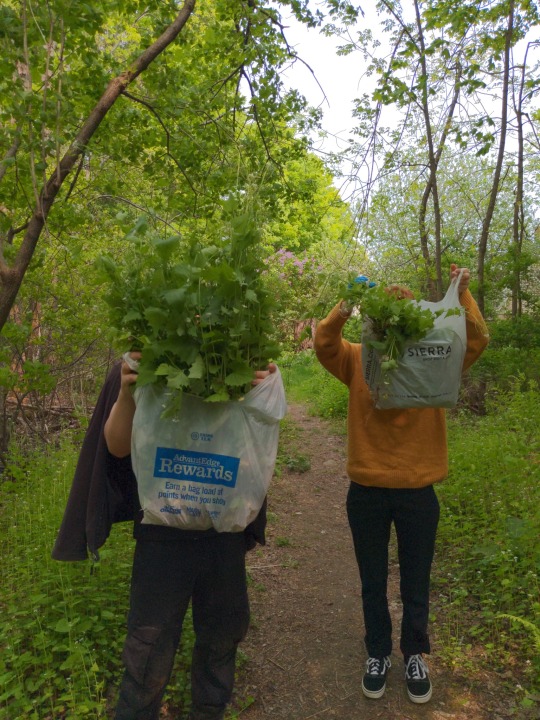
#sustainability#eat your invasives#invasive plants#garlic mustard#solarpunk#plants#foraging#garlic mustard war 2023#mine
172 notes
·
View notes
Text

Bane of my existence right here
26 notes
·
View notes
Text
Me on my way to make the same sandwich for the third month in a row (nothing else tastes good)

#toasted white bread w garlic aioli tangy mustard colby jack cheese a couple slices of oven roasted turkey basil leaves and 3 slices jalapeno#my basil plant died though and it's been a nightmare
126 notes
·
View notes
Text
Eat & Destroy: Garlic Mustard


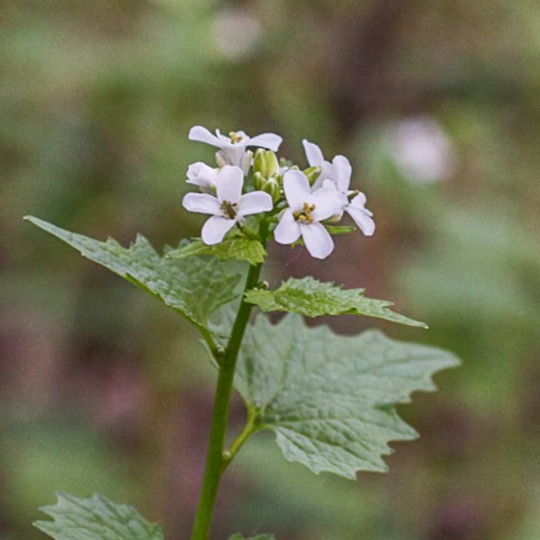
Fuck garlic mustard (in North America, anyway)! This plant is highly invasive and a serious threat to native plants through overcrowding, prolific seeding, and allellopathy. Brought to North America from Europe in the 1800s as a food plant, garlic mustard has now gone completely feral. In Europe garlic mustard or Jack by the Hedge is native and has it's place in the food chain.
Garlic mustard is also edible and tasty raw or cooked. You may have seen posts encouraging eating invasives, which is great and yes you should! But with garlic mustard harvesting for eating does nothing to control it's spread. If you want to make a difference in the biodiversity of your local woodlands you'll have to do more than forage. You need to eat and destroy.
Finding & Identifying Garlic Mustard
This bastard of a plant can grow just about anywhere. Roadsides, along forest edges, along creeks and streams, in open forest, in parks, around the city, and everywhere in between. And when you find it you'll probably find a lot of it.
Garlic mustard is a biennial herb that sends up tiny leaves in the first year and grows basal rosettes of leaves and tall flower stalks in the second year. The leaves have scalloped edges and are fairly round and kidney-shaped around the basal rosette and become more triangular as they move up the stalk. The stems are often purple-tinged. When crushed the leaves will give off their distinct garlicy smell. When fully grown it can reach up to 3 feet all.
In order to effectively remove garlic mustard you'll need to pull it before it flowers and seeds. It will likely flower somewhere around March-May depending on your area. The flowers are small, white, with four petals and the seed pods form on the stem beneath. The long, thin seed pods are about two inches long with small black seeds.
Harvesting Garlic Mustard for Eating
To harvest garlic mustard simply use your fingers and snap off the top tender portion of the stem and leaves, usually the top 6-12 inches. The stem should snap easily. The younger the plants the stronger their flavor.
Many foragers say the tastiest time to harvest garlic mustard is when the flowers are budding, but garlic mustard tops can bloom and go to seed even after you've picked them! A slightly more succulent stem isn't worth risking bringing invasive garlic mustard seeds home with you!!
Eating Garlic Mustard
The leaves and stems of garlic mustard are edible cooked or raw. The leaves have a mustard green/garlic-like flavor with some bitterness. The stem is the most delicious part. It's sweet and garlicy like a mix between a snap pea and a garlic scape.
Eat them raw, blend them up, saute them, steam them, add them to pestos and hummus, add them to pastas and soups and sauces, bake the leaves into chips, there's so many options with garlic mustard.
Removing & Managing Garlic Mustard
Now that you have plenty of garlic mustard tops to eat, let's destroy the rest!!!
To properly remove garlic mustard each plant needs to be pulled up root and all and either burned or suffocated to death. It takes some work so grab some foraging friends and organize a garlic mustard pull! Pull from the base of the stem to have the best chance of getting the whole root out.
Once you've pulled and gathered up all your garlic mustard roots and shoots, do not compost them!! They can still flower and seed and continue spreading. Instead you'll want to either:
Burn the fuck out of them. Burn them as soon as possible because as they dry the seed pods can still burst open and spread. Practice good fire safety and dance around it while you watch your plant enemies burn.
If you're not able to have a fire, your next best option is to suffocate them. Bag up the garlic mustard in opaque bags and leave them in the sun to die.
Remember where the patch of garlic mustard was and return at least once a year and repeat. With regular pulling you will deplete the garlic mustard's seed bank, but full removal can take years of regular pulling. It's a slow but important battle and you are making a difference with each plant pulled!!
Management Tips:
Don't leave any pulled garlic mustard on the ground because (you guessed it) it can still flower and seed. Make sure to gather and take it all with you to burn/suffocate.
Mowing is not effective for the same reason. Mowing when the seed pods are present will make things even worse!
Brush off your shoes and clothes before leaving the garlic mustard patch. Don't take home sneaky seeds
Some areas offer free control for invasive species like garlic mustard. Look into if there's any city or county weed control programs near you (and make sure they don't control by spraying chemicals!)
Some areas hold volunteer workdays to pull garlic mustard and teach proper management. Look into nature centers and volunteer groups near you, or start and plan your own!
If everyone interested in foraging went out and ate and destroyed a patch of garlic mustard, we might see a day where it's no longer a threat to our native woodlands! Be safe and happy foraging!🌱
Source, Source, Lyle, Katie Letcher. The Complete Guide to Edible Wild Plants, Mushrooms, Fruits, and Nuts. 2017. Pp. 16-18
#foraging#invasive plants#garlic mustard#garmussy#edible invasives#plant management#forest management#woodland management#invasive species
145 notes
·
View notes
Text










#my pictures#walk#may#seasonal#wildflowers#sky pictures#sky photography#landscape photography#landscapes#plant pictures#plant photography#sunset#evening sky#poppies#garlic mustard#jack-by-the-hedge#red campion#hybrid campion#reflections#clouds#of night and light and half light#hey its me posting pictures of plants again
8 notes
·
View notes
Text


Garlic Mustard Flower Fritter
#wild edibles#edible plants#spring plants#foraged food#spring forest#forager#foraging#witchy#kitchen witch#green witch#spring#witch community#witchblr#garlic#mustard#fritters#home cooking#cooking#simplerecipes#wild plants#wild food#invasive plants#invasive species
6 notes
·
View notes
Note
Hey! I don’t typically reach out to people on this accursed website, but your posts are really cool and informative! I saw that you’re gonna destroy some invasive plants; are you part of a volunteer group that does invasive plant control, or is it a job thing?
It's part of my job. I currently work with the local park district doing native plant restoration. That means a lot of killing invasive plants. Right now the priorities are garlic mustard (which is about to go to seed so we need to get as many out as we can) and hemlock (because its at the size where you can still pull it up without a shovel. We do a volunteer thing two days a week, which is how I started out.
5 notes
·
View notes
Text
Reading up on invasive plants continue to be a mistake because now that the garlic mustard's died back I am instead seeing dog-strangling vine everywhere. Admittedly Vincetoxicum rossicum and Vincetoxicum nigrum are pretty metal names but they really are out there blanketing the edge of every disturbed field and choking out the rest of the plant life...
#plant talk#t#i was interested in them for fibre reasons so at least i won't have to feel bad for harvesting them#this is a big reason why I'm trying to familiarize myself with invasive plants tbh#it's easy to confuse them with native milkweed at first but they're starting to flower now and the flowers are very distinct#i actually spent like 3 hours last night comparing their flowers to flowers of other milkweeds/dogbanes#because i was like there's SO many of them 😰#but... i guess that's what invasive plants do...#another way to tell them apart from native milkweeds is that the milkweeds are all being munched on by caterpillars#(not monarch caterpillars. these ones were black)#(there are other leptidora that are obligate herbivores on milkweed but i don't know what they are)#soooo. yikes.#these vines don't strangle dogs btw. no one knows why they're called that#i was gonna see if i could get anything workable out of garlic mustard but i waited too long#but Canada did release those weevils that only feed on garlic mustard so i don't think they're as big of an issue anymore#at least compared to these#which afaik don't really have any biological controls#if i harvest them I'll probably have to harvest in the evening right before the sun sets because i saw them growing among something that#looks suspiciously like ragweed. which is fine aside from the allergies. but ragweed also looks like wild carrot and wild parsnip#which are ABSOLUTELY NOT FINE and they will burn you like acid if you touch their sap and then go into the sun#no thank you !!#there's a few common plants that look like wild parsnip#but uhhhhhhh I'm not touching that lol#also found some wild grapes growing with them though! yum 😋#i don't care much for the grapes but the young shoots are sooooo good if you cook them up. they taste lemony
4 notes
·
View notes
Text
Garlic mustard (Alliaria petiolata) wildflower photo I took recently, Huddersfield, UK

#nature#nature photography#garlic mustard#white#white flower#white floral#white flowers#wildflowers#wildflower#wildflower photography#wildflora#wild flower#wild flower plants#wild flowers#flora#floral#flower photography#flower#flowers#botanical#botany#plant photography#plantlover#plantblr#plant#plants#british nature#uk nature#natural world#pretty
5 notes
·
View notes
Text
insane to me that we introduced autumn olive to be decorative and now they're fucking everywhere and choking out native ecosystems and people don't even know you can eat them
#not that eating them would STOP them but like. you know. a lot of wild edibles you should be conscientious about harvesting#but you can should and must overharvest autumn olive#garlic mustard is also edible (AND digging it up [to eat it] is actually useful) but that's part of why it was introduced in the first plac#as far as I can tell autumn olive was introduced for a variety of reasons but human consumption wasn't really one of them#anyway I dunno it's insane to me how many extremely normal very common plants are literally food and nobody TELLS us that#and especially wild when it's plants that are considered-- rightly or no-- some kind of problem#dandelions are like.... imagine if your lawn just kept sprouting spinach. just all year long no matter what you did#you can EAT them things!!! in lots of different ways!!! and people just don't KNOW that!!!#anyway eat autumn olives they are beautiful and tasty and highly invasive#about me
3 notes
·
View notes
Text
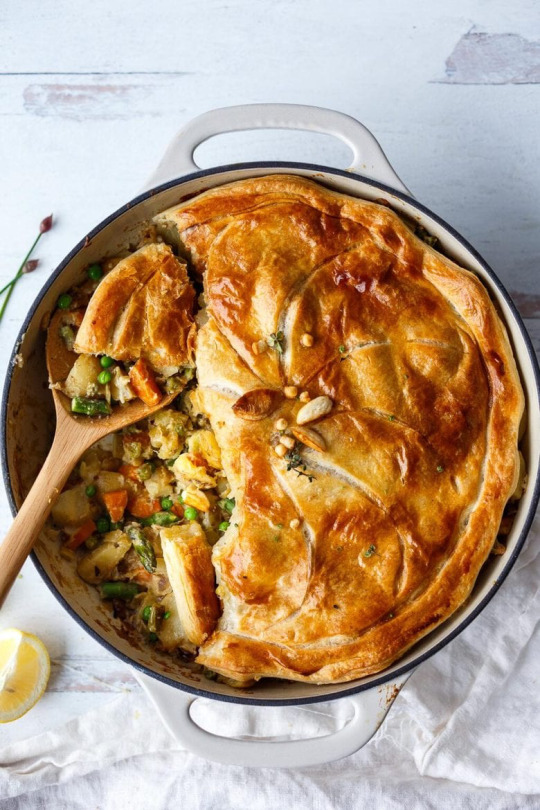
Vegan Pot Pie with Spring Vegetables
#vegan#lunch#dinner#pastry#pot pie#puff pastry#tarragon#carrots#fennel#asparagus#potato#green peas#onion#garlic#chives#lemon thyme#plant milk#mustard#lemon#vegan butter#black pepper#sea salt
70 notes
·
View notes